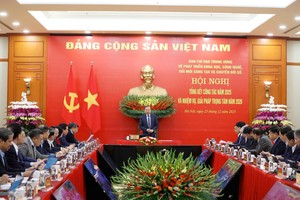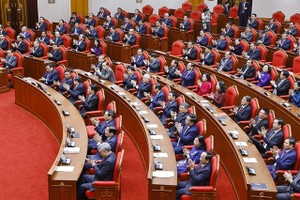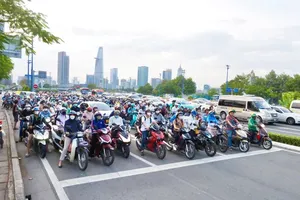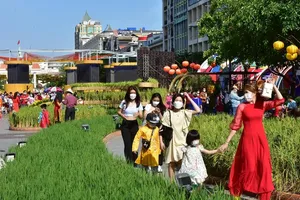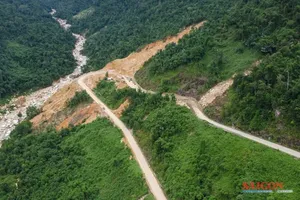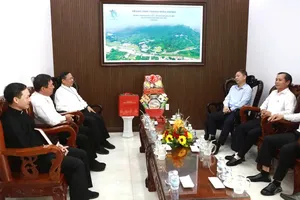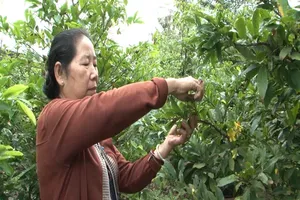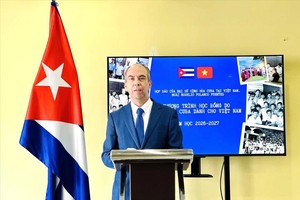The Son River, a part of the Phong Nha-Ke Bang National Park and nominated as a UNESCO world heritage site, is in grave danger due to the activities of some local residents.
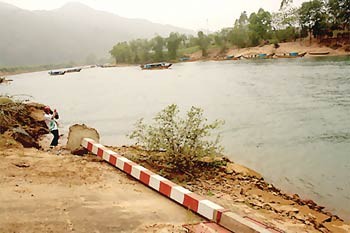
Lacking knowledge about the importance of environmental protection, many residents continually dredge sand from the river, which has led to severe soil erosion around the river’s edges. Moreover, the once pristine waterway is now extremely polluted with household garbage and wastewater.
The sudden erosion has taken around 20 kilometers off the surrounding banks, dramatically widening the river.
At one section of the riverbank, from Xuan Son Bridge to Chay Lap Confluence, a particularly large mass of land was lost to the water. Nearby homes also suffered damage when the land suddenly fell away.
Local resident Nguyen Van Luc says he watched helplessly as nearly 60 square meters of his garden and peanut crop was unexpectedly sucked into the river.
Mr. Nguyen Van Hoa, head of the Son Trach Ward People’s Committee, says the erosion has increased markedly in the last year and caused much hardship for hundreds of families in the area.
The river has now seized over 5 hectares of land used for agricultural purposes, he said.
Mr. Hoa believes the illegal extraction of sand by local residents is the main cause of the problem. As the People’s Committee member spoke, three private motorboats could be seen exploiting sand from the river without trying to disguise their activities.
Nearby, at the Nguyen Van Troi Ferry terminal, a large machine was being used to transfer sand to a truck, also in full view.
Residents say that their complaints to local officials have gone unanswered while the illegal activity continues unabated.
The more sand people take, the more land the river claims, leading to a vicious cycle of damage.
Severe pollution also plagues the Son River. Common household garbage like cans and plastic bags are regularly thrown into the waterway by local residents and tourists. But families also use the river as a receptacle for other waste such as discarded animal organs left over from cooking, leading to a foul stench.
The Son River is nearly unrecognizable to anyone who has visited it in years past, and the fate of the waterway remains in question unless officials and residents take immediate action.

